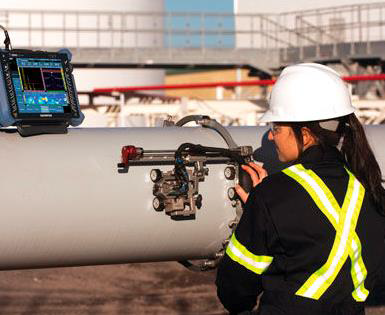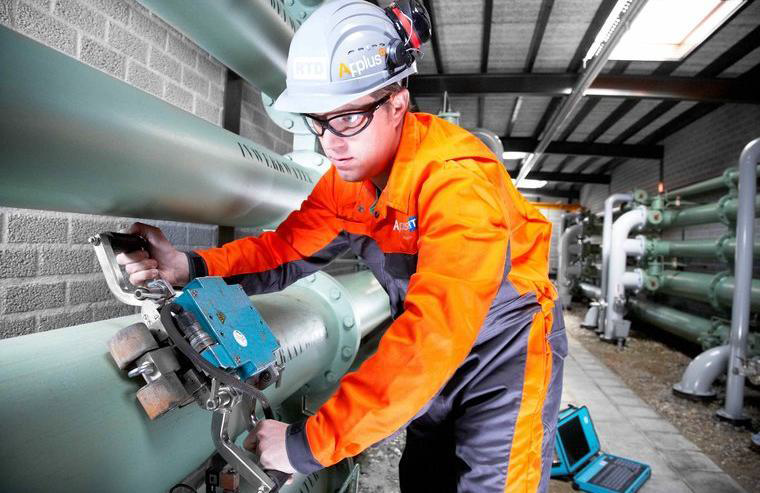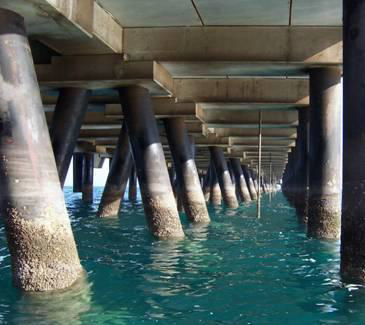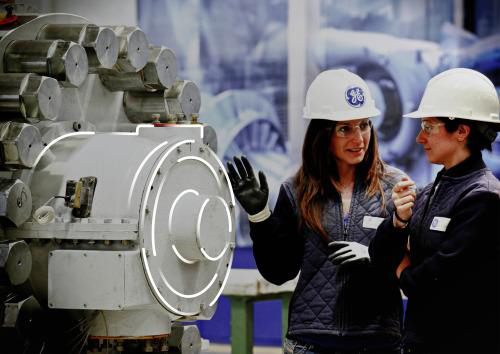COURSE OVERVIEW
FE0721 : ASME-V Non-Destructive Testing

OVERVIEW
| COURSE TITLE | : | FE0721 : ASME-V Non-Destructive Testing |
| COURSE DATE | : | Sep 09 - Sep 12 2024 |
| DURATION | : | 4 Days |
| INSTRUCTOR | : | Mr. Gert Viljoen |
| VENUE | : | Dubai, UAE |
| COURSE FEE | : | $ 4500 |
| Request For Course Outline | ||
OTHER SCHEDULED DATES
| Date | : | Mar 04 - Mar 07 (4 Days) | Location | : | Al Khobar, KSA | Classroom Fee (US$) | : | $ 4500 | Course Info |
| Date | : | Jun 03 - Jun 06 (4 Days) | Location | : | Doha, Qatar | Classroom Fee (US$) | : | $ 5000 | Course Info |
Course Description
This practical and highly-interactive course includes various practical sessions and exercises. Theory learnt will be applied using our state-of-the-art simulators. Non-destructive testing (NDT) is the process of inspecting, testing, or evaluating materials, components or assemblies for discontinuities, or differences in characteristics without destroying the serviceability of the part or system. In other words, when the inspection or test is completed the part can still be used. It?s a wide group of analysis techniques used to evaluate the properties of a material, part, product, weld, or system without causing damage. Non-destructive testing is a commonly-used tool in forensic engineering, mechanical engineering, electrical engineering, civil engineering, systems engineering, aerospace and aeronautical engineering, and medical applications. The terms Non- Destructive Examination (NDE), Non-Destructive Inspection (NDI), and NonDestructive Evaluation (NDE) are also commonly used to describe nondestructive testing methodology. It covers the various NDT methods and techniques such as liquid penetrant testing, magnetic particle testing, electromagnetic testing, ultrasonic testing method, radiographic testing, visual testing and other NDT methods and techniques.This course is designed to provide participants with a detailed and up-up-to date overview of non-destructive testing. It covers the NDT approach including method selection, detecting discontinuities, surface, subsurface, contrast with destructive testing, interpretive technology, test variables, standards for comparison and application; the various techniques of liquid penetrant testing and its advantages, disadvantages, limitations, types, equipment, safety precaution and personnel requirements; the proper method of magnetic particle testing covering the advantages and disadvantages as well as the basic magnetic particle process, preparation of parts, magnetization, application, assessment of discontinuities and magnetic particle testing methods. Further, the course will also cover the electromagnetic testing including the eddy current techniques and its principles as well as the factors affecting eddy current; the ultrasonic testing method including ultrasonic principles, detection of discontinuities, pulse-echo techniques and transmission techniques; the radiographic testing including the types of radiation, principles of radiography and the exposure factors; and the procedure of visual testing, other NDT methods and techniques and certification requirements. link to course overview PDF
TRAINING METHODOLOGY
This interactive training course includes the following training methodologies as a percentage of the total tuition hours
LecturesWorkshops & Work Presentations
Case Studies & Practical Exercises
Videos, Software & Simulators
In an unlikely event, the course instructor may modify the above training methodology before or during the course for technical reasons.
VIRTUAL TRAINING (IF APPLICABLE)
If this course is delivered online as a Virtual Training, the following limitations will be applicable
| Certificates | : | Only soft copy certificates will be issued to participants through Haward’s Portal. This includes Wallet Card Certificates if applicable |
| Training Materials | : | Only soft copy Training Materials (PDF format) will be issued to participant through the Virtual Training Platform |
| Training Methodology | : | 80% of the program will be theory and 20% will be practical sessions, exercises, case studies, simulators or videos |
| Training Program | : | The training will be for 4 hours per day starting at 09:30 and ending at 13:30 |
| H-STK Smart Training Kit | : | Not Applicable |
| Hands-on Practical Workshops | : | Not Applicable |
| Site Visit | : | Not Applicable |
| Simulators | : | Only software simulators will be used in the virtual courses. Hardware simulators are not applicable and will not be used in Virtual Training |
RELATED COURSES

FE0738 : Alternating Current Fiield Measurement (ACFM) Training & Certification Level 2 (ASNT, SNT-TC-1A)
- Date : Dec 08 -Dec 12 / 3 Days
- Location : Dubai, UAE
- Course Details Register

FE0270 : Cathodic Protection Systems: Design, Installation, Testing and Repair
- Date : Dec 15 -Dec 19 / 3 Days
- Location : Dubai, UAE
- Course Details Register

FE0920 : API 580: Risk Based Inspection (API Exam Preparation Training)
- Date : Dec 15 -Dec 19 / 3 Days
- Location : Dubai, UAE
- Course Details Register

FE0265 : Pipeline Corrosion Management, Risk Assessment, Technical Integrity, Inspection, Remediation & Repair
- Date : Dec 08 -Dec 12 / 3 Days
- Location : Istanbul, Turkey
- Course Details Register
